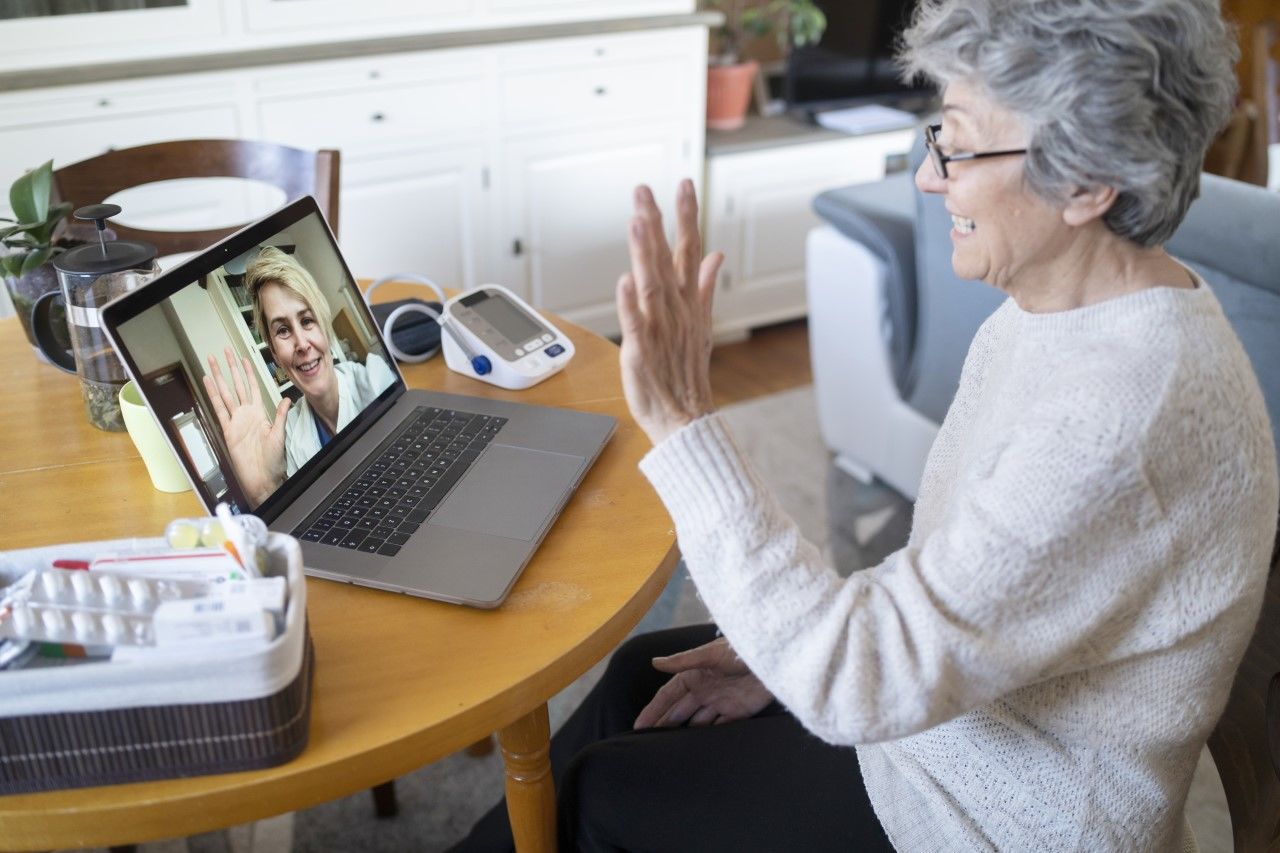Getting the care you need without going to the hospital
Elderly residents in South Australia can now receive video-linked hospital consultations and care at home. Will other states follow?

Key points
- Successful trial of virtual medical care for aged care home residents completed.
- The remote service enables residents to get emergency department care via video link.
- Residents prefer getting treatment in their homes rather than being transported to a hospital.
Every day, thousands of aged care residents are transferred to hospitals for diagnosis and treatment.
Many residents do not return to their homes.
This current approach can adversely affect the health and well-being of the patient after being removed from their home environment. It also adds to the growing pressures on our hospitals and ambulance services.
South Australia has completed an innovative technology and treatment trial, which could have widespread aged-care ramifications for the rest of the nation.
Following the success of the Virtual Care Service trial, it will now be implemented in more than 150 residential care facilities, which are home to more than 11,000 residents.
Through a video link, General Practitioners (GPs) and aged care home staff and residents have direct access to senior hospital medical staff where urgent but non-emergency support is required.
The trial with aged care facility provider Eldercare resulted in 80 per cent of patients having consultations and receiving care at their residences. Patients avoided transportation to emergency departments and unnecessary triple-zero calls.
Without having to leave their home, the resident, their care team, and their family can assess, monitor, and determine the most appropriate and safe options for care.
Residential care teams use an electronic tablet linked to specialist medical, nursing and paramedic clinicians. When urgent care is required, aged care staff and GPs click a button for immediate access to a consultation with a senior, multi-disciplinary team.
The Virtual Care Service Executive Director, David Morris, said the service is staffed by experienced doctors, paramedics and nurses and the average wait time to speak to a doctor is 30 minutes.
"You will get the same level of expertise through this service as you would if you present to an emergency department," he said.
Currently, thirty-five aged care residents are taken daily to South Australian metropolitan emergency departments.
AAP reported the state’s most serious emergency cases increased by more than 6 per cent in September compared with the same time a year ago. There was also a 2.3 per cent jump in these cases compared with August.
The new virtual service is expected to receive approximately 18 referrals per day, calls that would otherwise have resulted in an ambulance call-out.
It is estimated that every aged care resident who avoids a trip to the emergency department frees up at least two hours for the ambulance service.
With the success of the trial in South Australia, National Seniors hopes that others states and territories move quickly to adopt this ground breaking program.For further reading: Eldercare and South Australia Virtual Care Service







